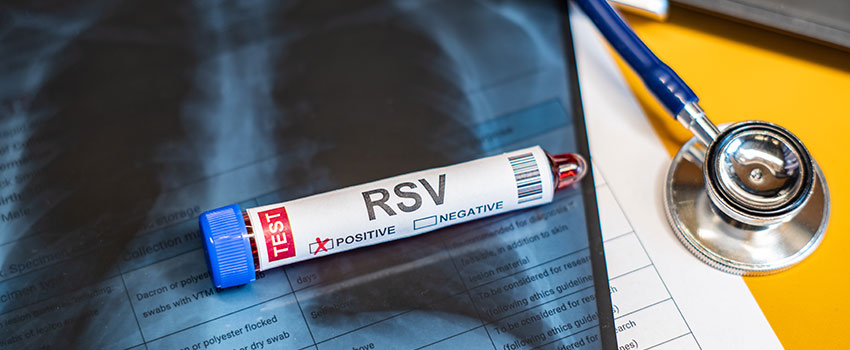Can Anyone Get RSV?

It’s that time of year again when we all take to the internet to search our current symptoms of illness and try to diagnose ourselves. The fall and winter seasons bring an abundance of different infections and other illnesses that can make us feel really sick.
Among those illnesses is RSV, or respiratory syncytial virus. While anyone can contract RSV, it is much more dangerous for an older adult or a small child to contract this stubborn virus.
Our AFC Urgent Care Fountain City team explains more below about RSV and the dangers that it poses.
How is RSV Transmitted?
RSV is a viral infection and can easily be spread from person to person through airborne droplets. This is why you should always cover your coughs and sneezes, even if you aren’t outwardly sick! You can also get it through direct contact with an infected individual, which is why many providers will encourage you to limit the number of people who are allowed to kiss and hug your baby during this time of year.
Once you are exposed to RSV, symptoms can start anywhere from one to four days later and will often start out slowly. What starts as a minor cough and low-grade fever could eventually turn into sudden respiratory distress, which is always considered a medical emergency.
Early Symptoms of RSV
- Fever
- Runny nose/congestion
- Shallow breathing
- Cough
- Muscle or body aches
Why Are Children More Susceptible to RSV?
RSV is an upper respiratory infection, which means it settles into the breathing passages and airways. For adults, this usually leads to some minor discomfort and a mild cough. It is a much different story for kids because their airways are so much smaller than ours. Any sort of inflammation in this area can directly cause issues with breathing and can lead to serious respiratory troubles.
Even a small amount of inflammation in an infant or newborn can be dangerous or even deadly, so knowing what to look for and seeking medical attention right away is critical. Keep a close eye on your child and always err on the side of caution if you are worried about any symptoms he or she is experiencing.
Signs Your Child’s RSV Infection Is Serious
- Shallow breathing or chest contractions
- A high fever that won’t go away
- Blue skin or fingernails
- Loss of consciousness
If you aren’t feeling well, we can help. Come see us at AFC Urgent Care Fountain City.
